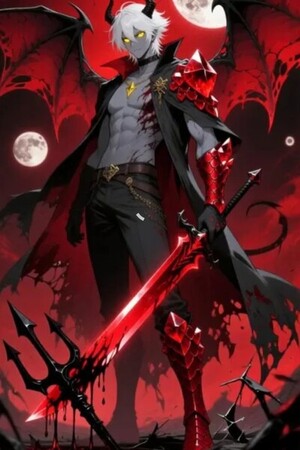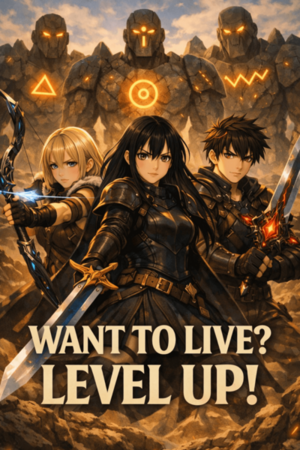Chapter 3:
Were They Happy?
Kyslicium
***
The visit with my great-great-grandfather left me feeling lighter, as if an invisible weight had been lifted from my shoulders. For the first time in weeks, the crushing guilt of our failed mission no longer suffocated my every thought.
With newfound clarity, I made a decision: it was time to return to my former profession—teaching.
The education system had changed drastically in this era of peace and longevity. Schools no longer existed to churn out workers for predetermined roles in society. Instead, they were places of pure knowledge—sanctuaries for curiosity and discovery.
Students weren’t burdened with vocational pressure or looming deadlines. They simply… learned.
When I stepped into the classroom, I was greeted by a stunning fusion of tradition and technology. Sleek, interactive holographic panels lined the walls, displaying dynamic maps and glowing diagrams. The hum of projectors and filtration systems filled the air with a faint mechanical lull.
But amid all this technology, one thing remained stubbornly familiar: the plastic desks that looked almost identical to the wooden ones. Rows of them stood polished and neat, their surfaces worn with faint marks left behind by restless hands. A deliberate choice, I knew—to remind students of an era when simplicity bred focus.
The children seated at those desks—twenty young faces staring back at me with bright, eager eyes—were humanity's true treasure. They had centuries ahead of them, and every day they spent here shaped not only their lives but also the world’s future.
I cleared my throat, letting my voice carry through the acoustically optimized classroom.
“And that’s why, when the world peace was finally achieved, there was no longer any need for the separation of nations by borders. The walls fell, the barriers dissolved, and humanity stood united under one banner. Thus, Worlderia emerged—the first and only country on Earth.”
A soft murmur passed through the classroom, followed by wide-eyed stares and eager nods. Some students scribbled notes on their digital tablets, while others sat frozen, absorbing every word.
In those faces, I saw a flicker of hope—the kind of untainted optimism that only youth could carry.
For a brief moment, I allowed myself to step back from the teacher's podium and simply watch them—these young souls who had never known war, famine, or the desperate scramble for survival.
“History isn’t just about the past,” I said softly, my voice carrying a quieter weight now. “It’s about understanding how we got here so that we never lose sight of where we need to go next.”
The classroom fell silent, save for the faint hum of technology filling the air.
With a nod, I closed the holographic interface at the podium.
“Any questions?”
I asked but the classroom already buzzed with excitement, a low murmur that grew into an unstoppable tide of queries.
I barely had time to step away from the podium before I was swarmed by twenty pairs of bright, curious eyes, their hands shooting into the air—or simply waving wildly—as they shouted all at once.
‘How was your mission, Mr. Talos?’
‘Is it true that Wood Hunters use those cool laseraxes?’
‘What’s it like outside the barrier?’
‘Did you really cough blood when you breathed oxygen?’
‘Did people in the past actually use something called money to survive?’
‘Please tell us, Mr. Talos!’
Their enthusiasm was contagious, and I couldn’t help but smile despite myself.
So much for my free afternoon.
“Alright, alright!” I said, raising my hands in mock surrender. “One question at a time, or I’ll need another century’s worth of Kyslicium just to keep up with you all.”
The students giggled, their youthful energy filling the air like a bright pulse of light.
A blonde girl, no older than ten, stepped forward hesitantly. Her oversized glasses magnified her wide blue eyes, making her look even more earnest.
“Did anybody say ‘money’? What’s that?”
My smile faltered slightly as I searched for an answer. If Kael were here, he’d have delivered a ten-minute lecture complete with diagrams and historical references. Lately, his head was always buried in ancient books, obsessing over the smallest details of how our ancestors lived, ate, and what they believed in.
“Well,” I began, leaning casually against the edge of the teacher’s desk, “money was a type of currency that people used long ago. If you needed something—food, furniture, even a house—you’d have to buy it using money.”
The girl tilted her head slightly, her brow furrowing. "A house? Couldn’t they just use Builderites?"
I chuckled softly. “No, they didn’t have Builderites back then. Those machines run on Kyslicium, which didn’t exist back then. People had to build houses brick by brick, with their own two hands. Every wall, every roof—it was all done manually.”
A boy with messy black hair chimed in, his eyes wide with disbelief. “And how did they buy food? Isn’t food just… you know… streamed online to every household for free?”
The corners of my mouth twitched upward. “That’s a question people from the past wouldn’t even understand. They didn’t have the technology to ‘stream food’ directly into their homes.”
The class leaned in closer, hanging onto my every word.
“Instead, they had these places called restaurants. You’d walk into one, sit down, and pick something you wanted to eat from a menu. Then someone would bring you the food, you’d eat it, and afterward… you’d pay with money."
The blonde girl’s brow furrowed again. “But… how did they decide how much it cost?”
I scratched the back of my neck, realizing I’d wandered into Kael’s territory.
“Honestly, that’s beyond me. I think they just… calculated their expenses, added some extra on top, and called it a day.”
After that, a brown-haired girl sitting near the front row raised her hand. Her posture was straight, her voice steady but polite as she asked, “And did children study the same way we do, Mr. Talos?”
“No, they didn’t, actually. And that’s something even I find a little… strange.”
The class waited for me to elaborate. I let the silence stretch for a moment longer before continuing, my voice dropping conspiratorially.
“Teachers back then would write—get this—by hand, on something called a blackboard.”
A few gasps escaped from the students. Someone near the back whispered, “By hand? Like… with their fingers?”
I laughed softly. “No, not with their fingers. They used chalk—a stick of white powdery material that left marks when you rubbed it against the blackboard. And they would stand there, writing everything by hand while students copied it down in their… notebooks.”
“Notebooks? Like e-pads?” a boy interjected.
“No, not e-pads. They were made out of something called paper.”
There was a collective intake of breath, the word ‘paper’ causing ripples of confusion and awe across the room.
“And do you know what paper was made of?” I asked, leaning slightly forward.
The brown-haired girl hesitated before answering softly, “W-wood…?”
I pointed at her with an approving nod. “Exactly. And they studied from books. Actual physical books and there were millions of them. No holograms, no glowing letters, no swiping pages with your finger. Just… ink on paper.”
A collective “Woah…” spread across the classroom.
For a moment, the technology buzzing in the background faded away, replaced by the soft rustle of curiosity filling the air. The students’ faces were lit with fascination, their imaginations painting pictures of brick-and-mortar homes, restaurants filled with chatter, and money changing hands. But surely enough, their young brains couldn’t help but wonder how such a dangerous material – wood – could have been so scarily common. I described a world so alien to them, it might as well have been from another planet.
“It’s strange to think about, isn’t it?” I said softly, my voice barely above a whisper. “A world where everything had a price. Where survival wasn’t guaranteed—where people had to fight for every scrap of food, every breath of air.”
The blonde girl’s small voice cut through the silence. “Do you think… they were happy, Mr. Talos?”
The question caught me off guard.
Were they happy? Did they cherish their chaotic, uncertain lives more than we do now? Did the struggle make their victories sweeter?
“I think… they found happiness in their own way,” I said finally, offering her a small smile. “Just like we do now.”
The bell chimed softly overhead, signaling the end of the school day. The children began to gather their tablets and e-glasses, their chatter growing louder as they filed out of the classroom.
But that one question lingered in my mind, echoing faintly as the door slid shut behind the last student.
‘Do you think they were happy?’
I stared out the window at the clear blue sky beyond the school walls.
Outside the barrier, a wasteland stretched endlessly. Inside, humanity lived in a controlled harmony, every breath carefully measured, every need meticulously met.
But was it enough?
Did we lose something essential when we stopped struggling to survive?
The faint echo of the children's voices carried through the empty hallway, and I let out a long breath.
“I hope so, little one,” I murmured. “I really do.”
Chapter 3: END




Please sign in to leave a comment.